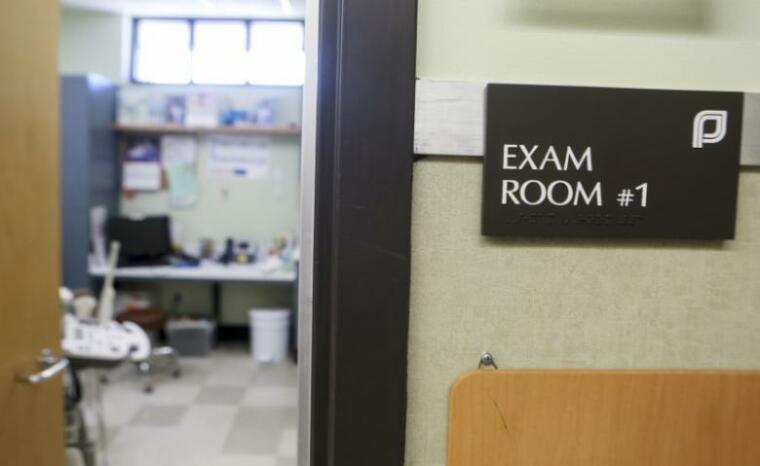New Texas law requires proper burial for aborted babies

The State of Texas has issued a new regulation that would require abortion facilities and hospitals to cremate or bury the remains of aborted babies.
The rule, which was finalized on Monday, was proposed by the Texas Department of Health and Human Services in July and will take effect on Dec. 19, according to LifeSite.
"The new law honors the humanity of each child and gives the baby the dignity he or she deserves," Students for Life of America President Kristan Hawkins told LifeSite.
"It's no surprise the abortion industry is adamantly opposed to this law. They would rather sell those body parts for money or find some other non-humanitarian way to dispose of the remains," she added.
The new regulation will not apply to women who miscarry or perform chemical abortions in their homes.
The current state law allows the remains of aborted babies to be discarded, incinerated, or ground up and be disposed of in a sanitary landfill. The disposal is usually handled by third-party special waste services.
Several abortion advocates have raised their concerns that the new rule would be costly and make it more difficult for people to obtain abortions.
HHS spokeswoman Carrie Williams said that the department has conducted a study that indicated that the new regulation would not increase the costs of healthcare facilities.
"While the methods described in the new rules may have a cost, that cost is expected to be offset by costs currently being spent by facilities on disposition for transportation, storage, incineration, steam disinfection and/or landfill disposal," Williams said in an email in October, as reported by Dallas News.
Health officials have clarified that patients will not be responsible for the disposal of the fetal remains and there will be no requirements for birth or death certificates.
Lawyers for the Center for Reproductive Rights have hinted that they are likely to challenge the new rules in court, The Texas Tribune reported. In a letter to the health officials, the lawyers stated that the regulation "will almost certainly trigger costly litigation."
 Christians don't have to affirm transgenderism, but they can’t express that view at work: tribunal
Christians don't have to affirm transgenderism, but they can’t express that view at work: tribunal Archaeology discovery: Medieval Christian prayer beads found on Holy Island
Archaeology discovery: Medieval Christian prayer beads found on Holy Island Presbyterian Church in America votes to leave National Association of Evangelicals
Presbyterian Church in America votes to leave National Association of Evangelicals Over 50 killed in 'vile and satanic' attack at Nigerian church on Pentecost Sunday
Over 50 killed in 'vile and satanic' attack at Nigerian church on Pentecost Sunday Ukrainian Orthodox Church severs ties with Moscow over Patriarch Kirill's support for Putin's war
Ukrainian Orthodox Church severs ties with Moscow over Patriarch Kirill's support for Putin's war Islamic State kills 20 Nigerian Christians as revenge for US airstrike
Islamic State kills 20 Nigerian Christians as revenge for US airstrike Man who served 33 years in prison for murder leads inmates to Christ
Man who served 33 years in prison for murder leads inmates to Christ


 Nigerian student beaten to death, body burned over ‘blasphemous’ WhatsApp message
Nigerian student beaten to death, body burned over ‘blasphemous’ WhatsApp message 'A new low': World reacts after Hong Kong arrests 90-year-old Cardinal Joseph Zen
'A new low': World reacts after Hong Kong arrests 90-year-old Cardinal Joseph Zen Iran sentences Christian man to 10 years in prison for hosting house church worship gathering
Iran sentences Christian man to 10 years in prison for hosting house church worship gathering French Guyana: Pastor shot dead, church set on fire after meeting delegation of Evangelicals
French Guyana: Pastor shot dead, church set on fire after meeting delegation of Evangelicals ‘Talking Jesus’ report finds only 6% of UK adults identify as practicing Christians
‘Talking Jesus’ report finds only 6% of UK adults identify as practicing Christians Mission Eurasia ministry center blown up in Ukraine, hundreds of Bibles destroyed: 'God will provide'
Mission Eurasia ministry center blown up in Ukraine, hundreds of Bibles destroyed: 'God will provide' Church holds service for first time after ISIS desecrated it 8 years ago
Church holds service for first time after ISIS desecrated it 8 years ago Burger King apologizes for 'offensive campaign' using Jesus' words at the Last Supper
Burger King apologizes for 'offensive campaign' using Jesus' words at the Last Supper Uganda: Muslims abduct teacher, burn him inside mosque for praying in Christ’s name
Uganda: Muslims abduct teacher, burn him inside mosque for praying in Christ’s name